Normal Word Problems Worksheets for Ages 3-7
41 filtered results
-
From - To
Discover engaging Normal Word Problems Worksheets designed for children ages 3-7. These worksheets provide a fun and effective way for young learners to explore basic math concepts through relatable scenarios. Our problems encourage critical thinking and problem-solving skills while honing arithmetic abilities, making math enjoyable for early learners. With vibrant illustrations and age-appropriate questions, these worksheets are perfect for home or classroom use. Parents and educators can easily print and integrate them into learning routines, fostering a love for math through playful challenges. Start nurturing your child's mathematical curiosity today with our carefully crafted resources!
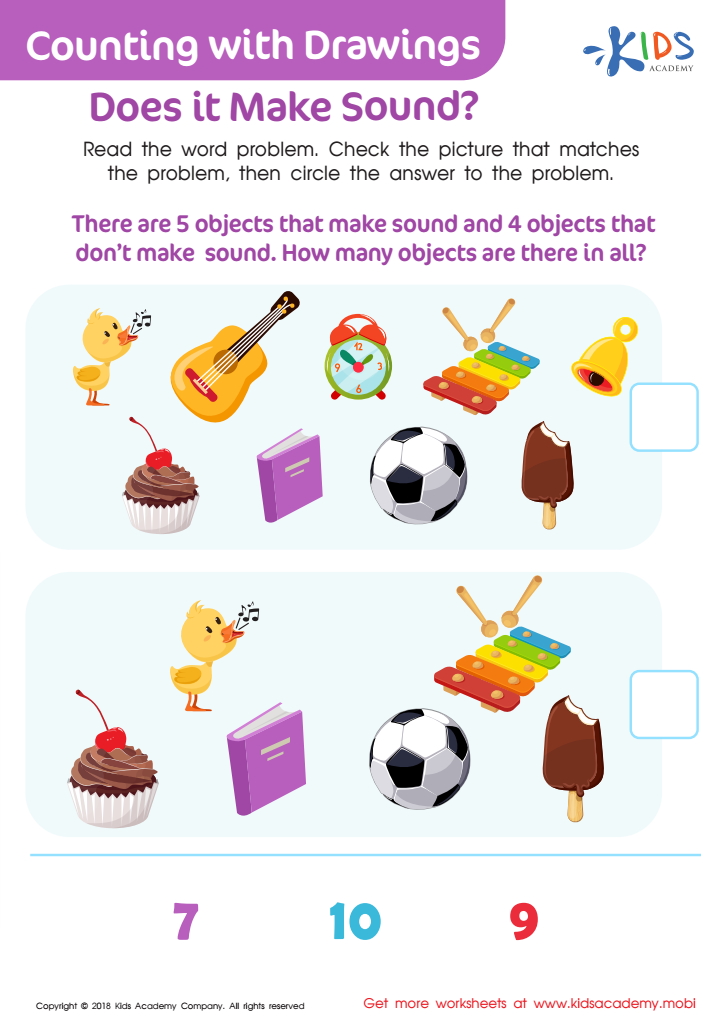

Counting With Drawings. Does It Make Sound? Worksheet


Tricky Problems Worksheet: Part 1
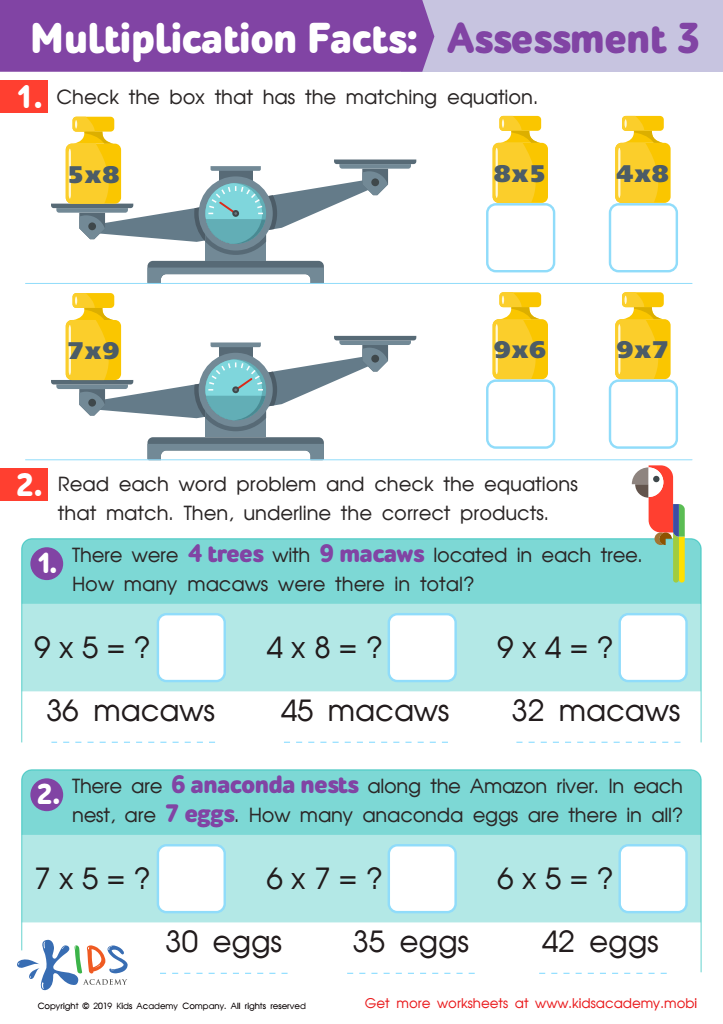

Multiplication Facts: Assessment 3 Worksheet
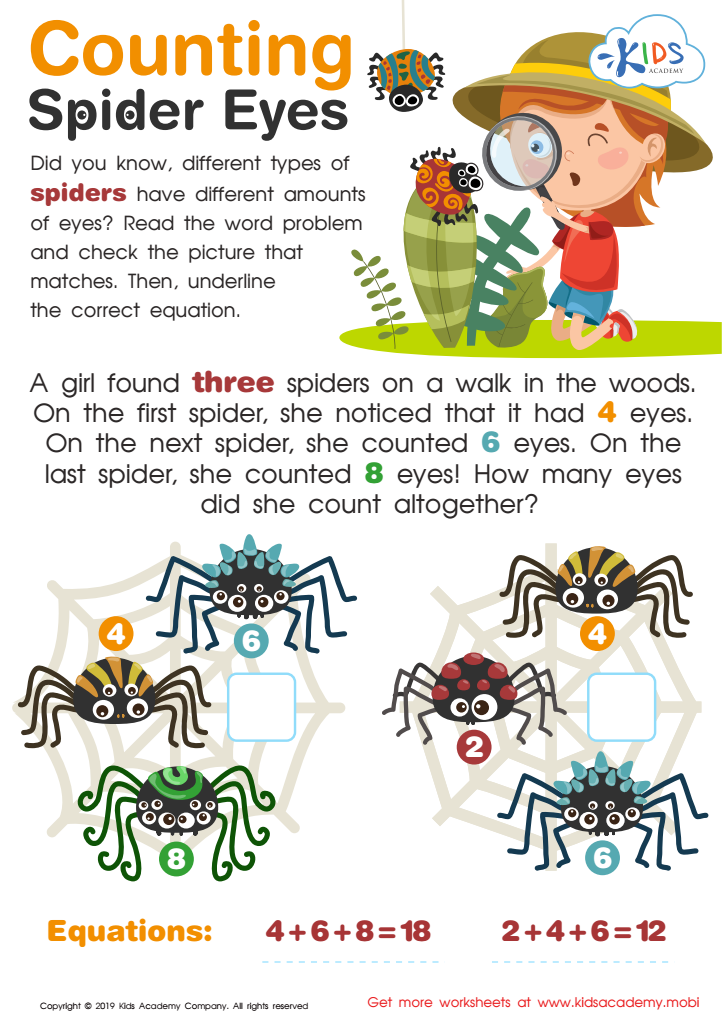

Counting Spider Eyes Worksheet
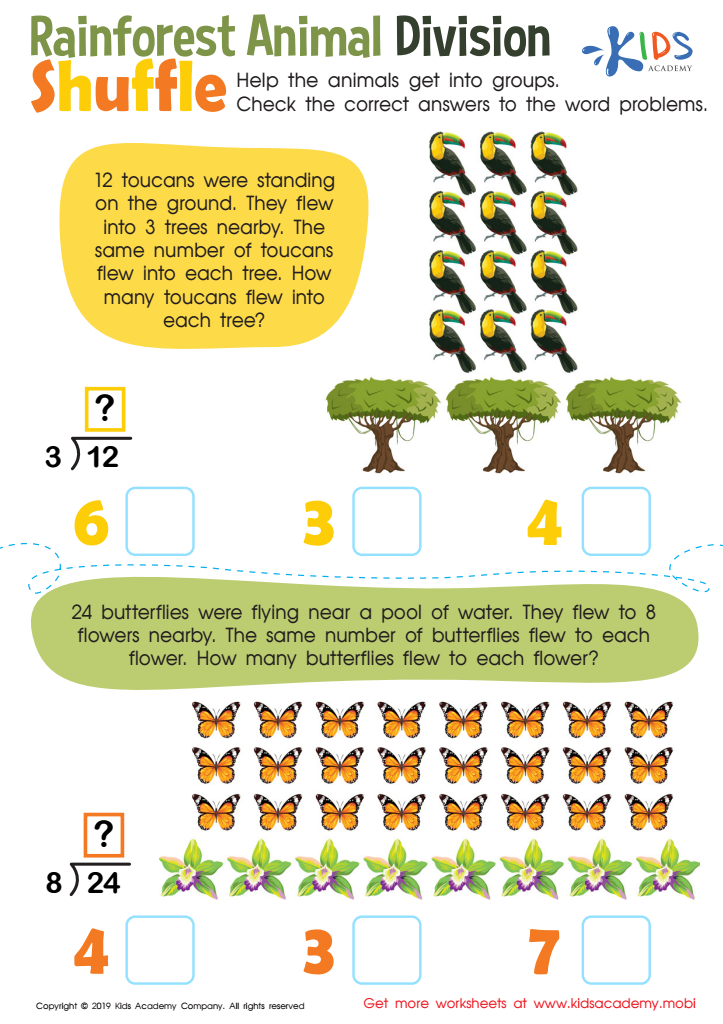

Rainforest Animal Division Worksheet


Enrichment -2 Step Word Problems Worksheet
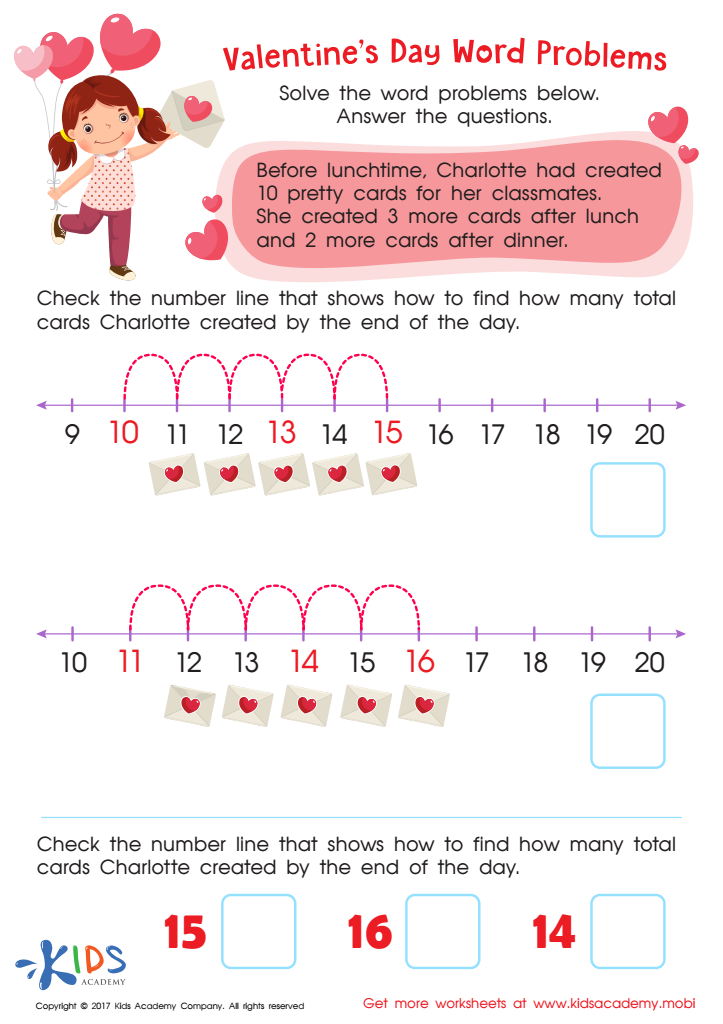

Valentines Day Word Problem Worksheet


Adding Flower Petals Worksheet
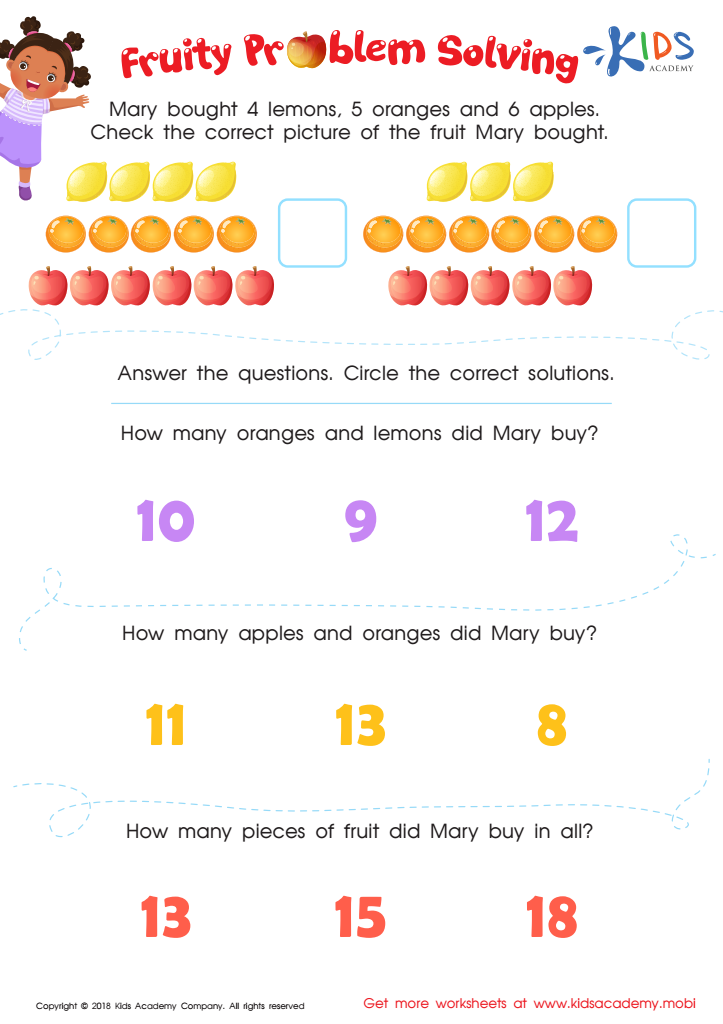

Fruity Problem Solving Worksheet
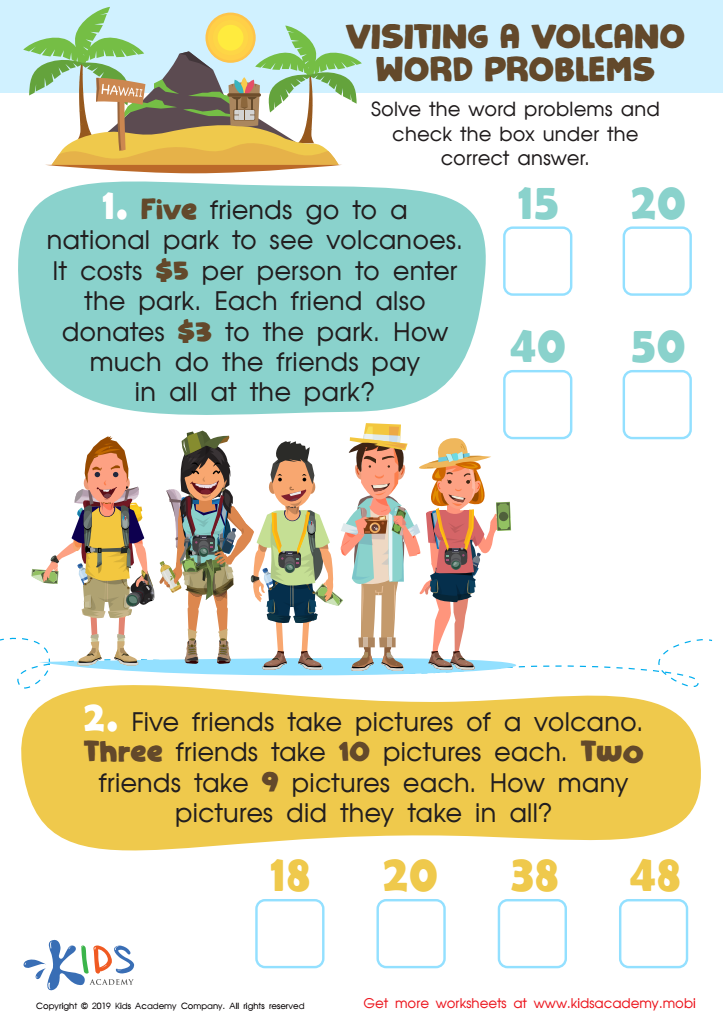

Visiting a Volcano Word Problems Worksheet
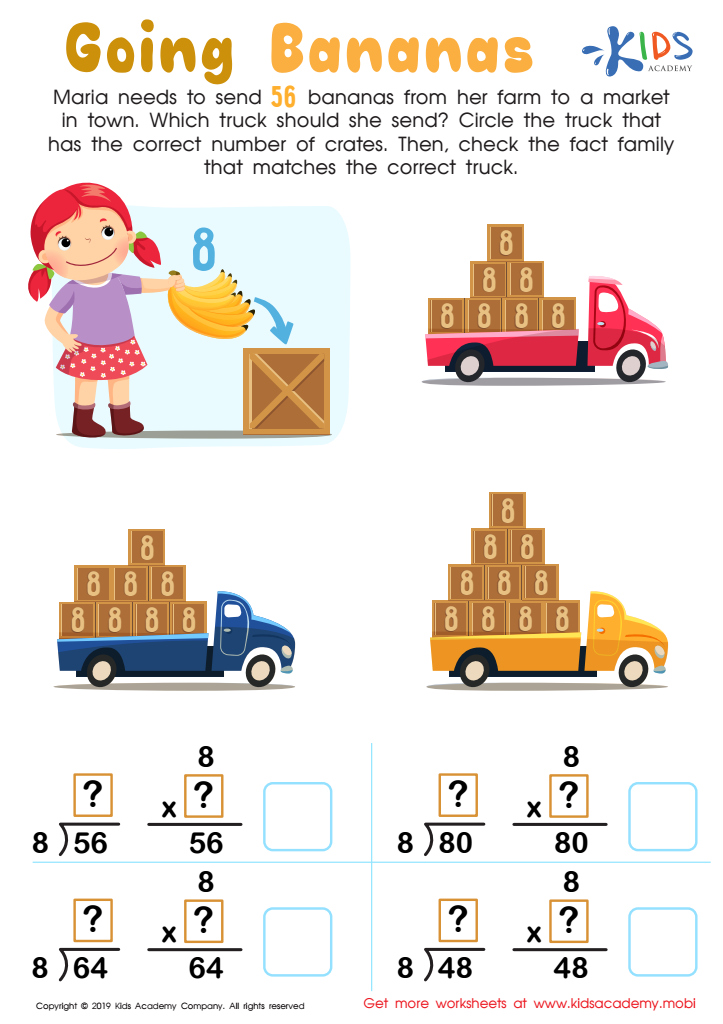

Going Bananas Worksheet
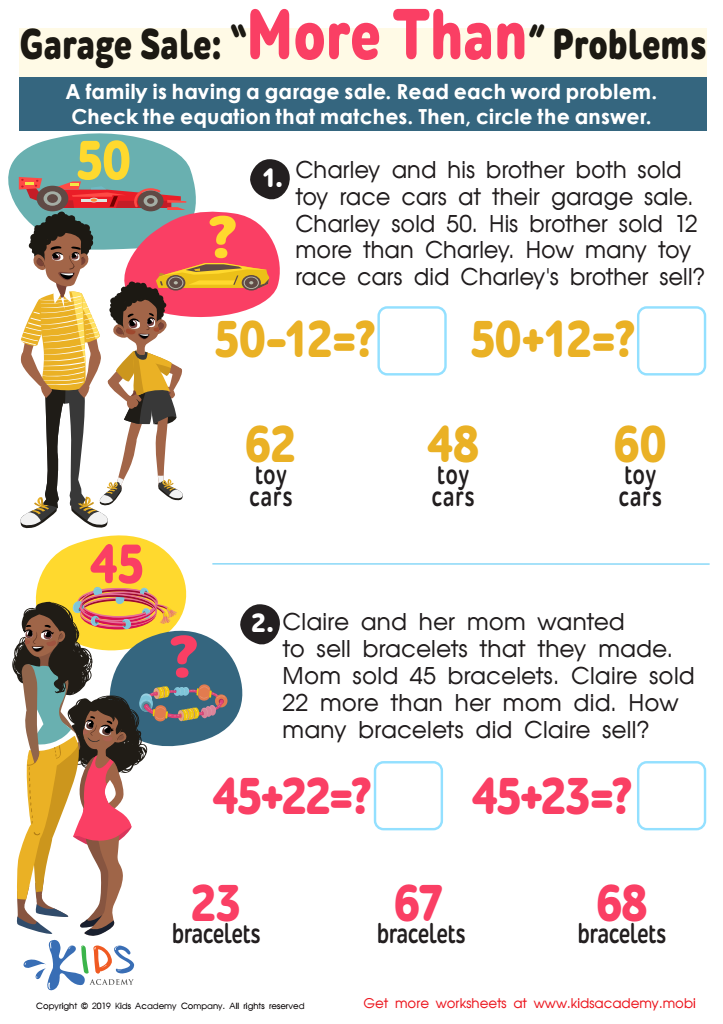

Garage Sale - More yhan Worksheet
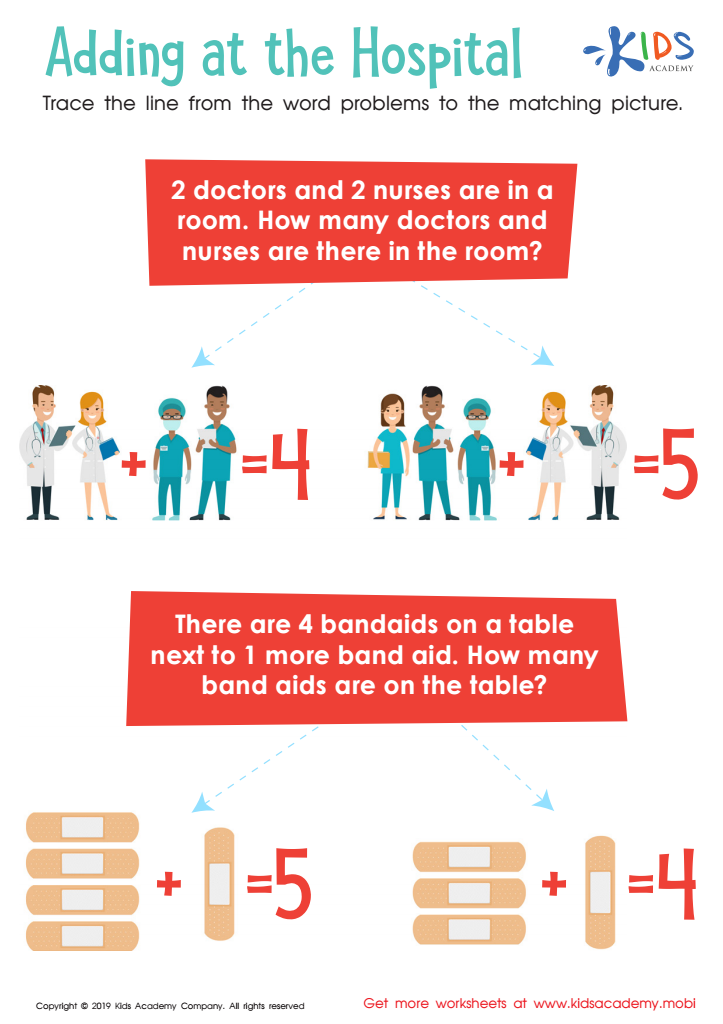

Adding at the Hospital Worksheet


Pollinator Positions Worksheet
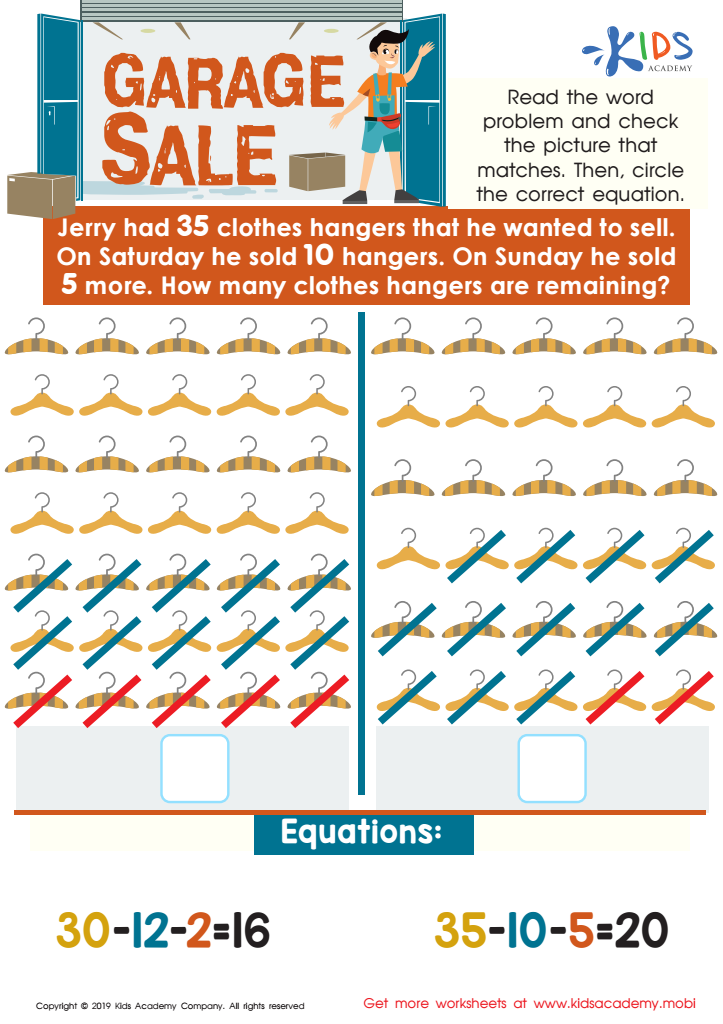

Garage Sale Worksheet


Tricky Problems Worksheet: Part 2
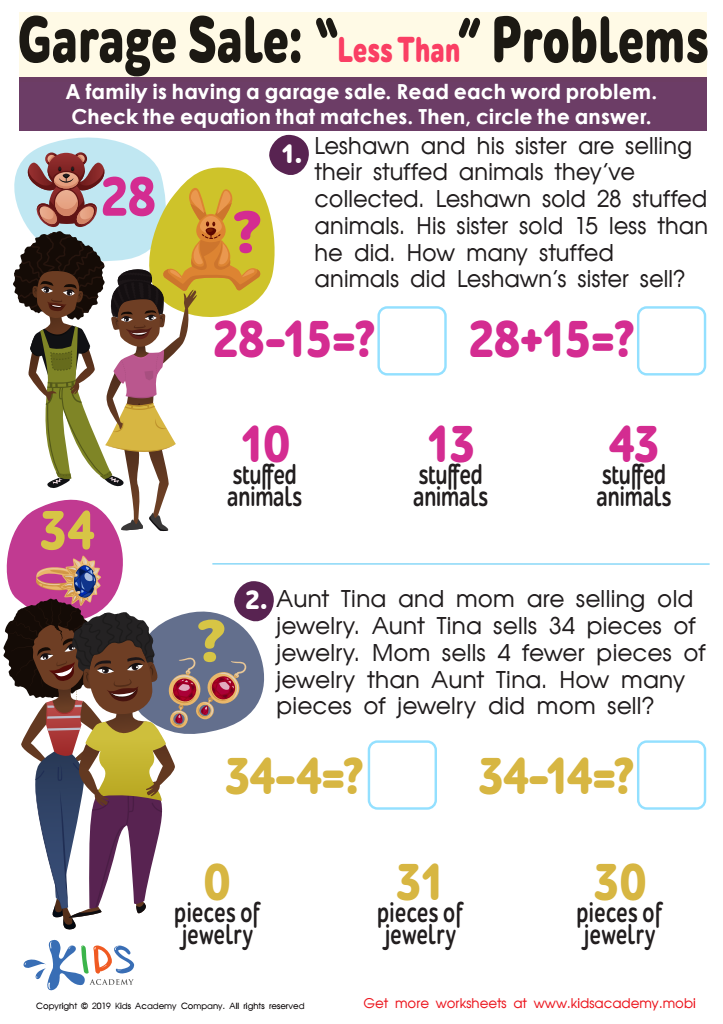

Garage Sale Less Than Worksheet
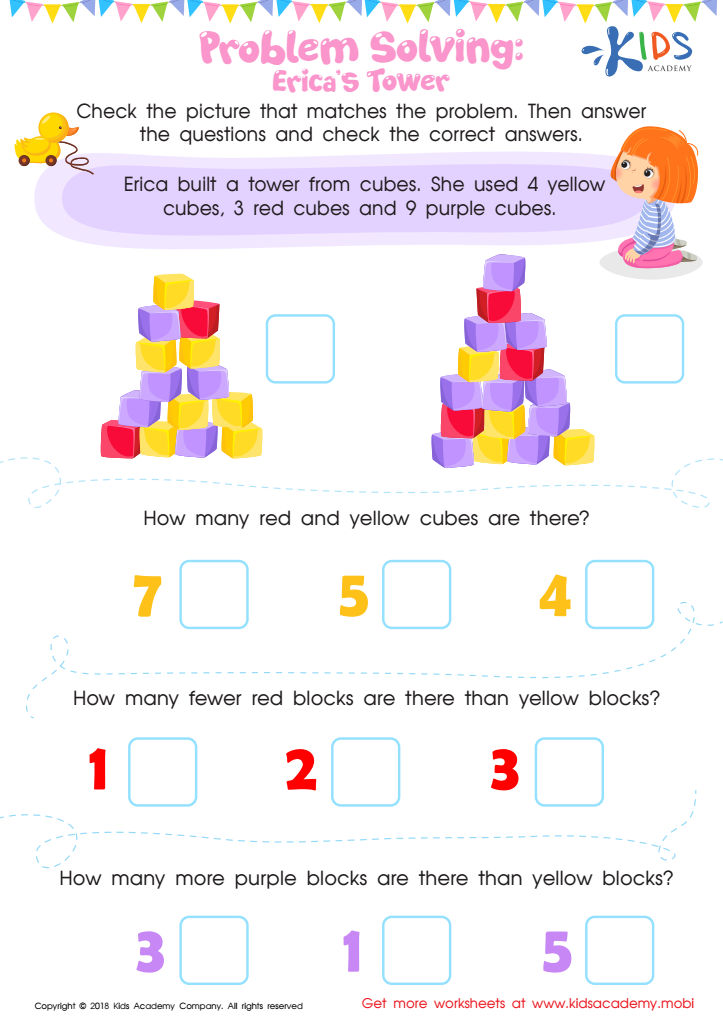

Problem Solving: Erica's Tower Worksheet
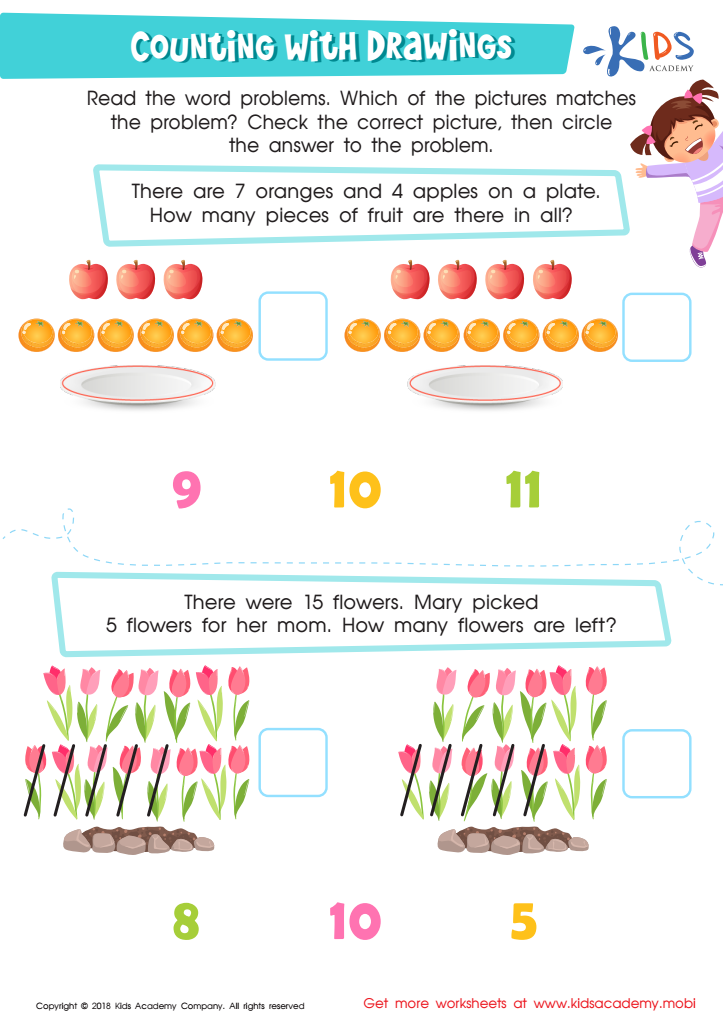

Counting with Drawings: Fruits & Chocolates Worksheet
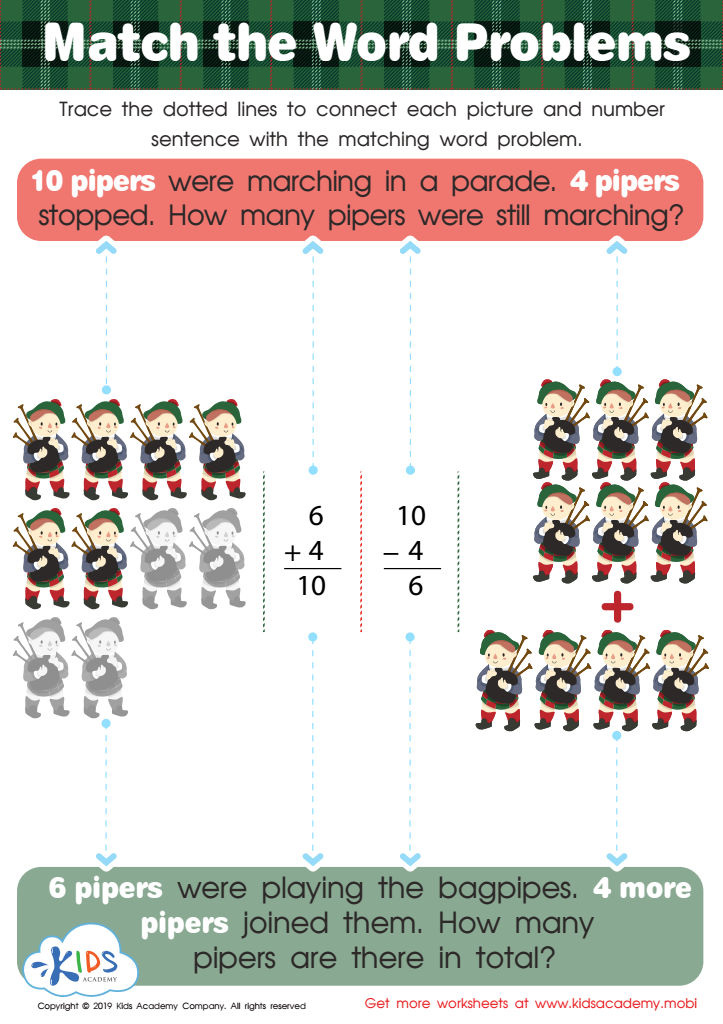

Match the Word Problems Worksheet
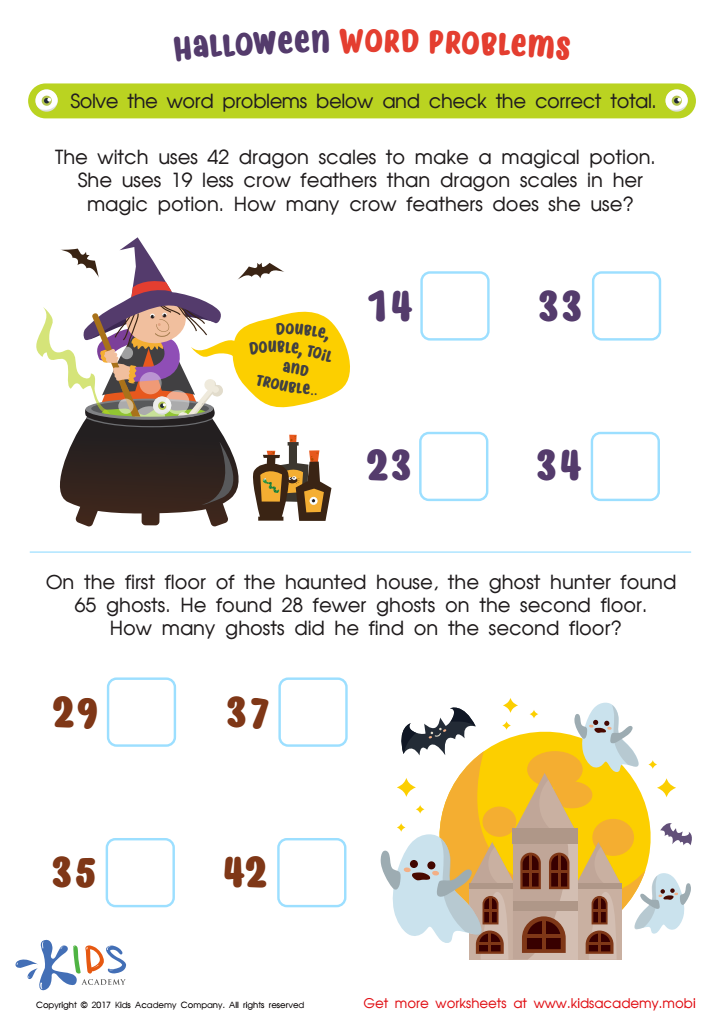

Halloween Word Problems Printable
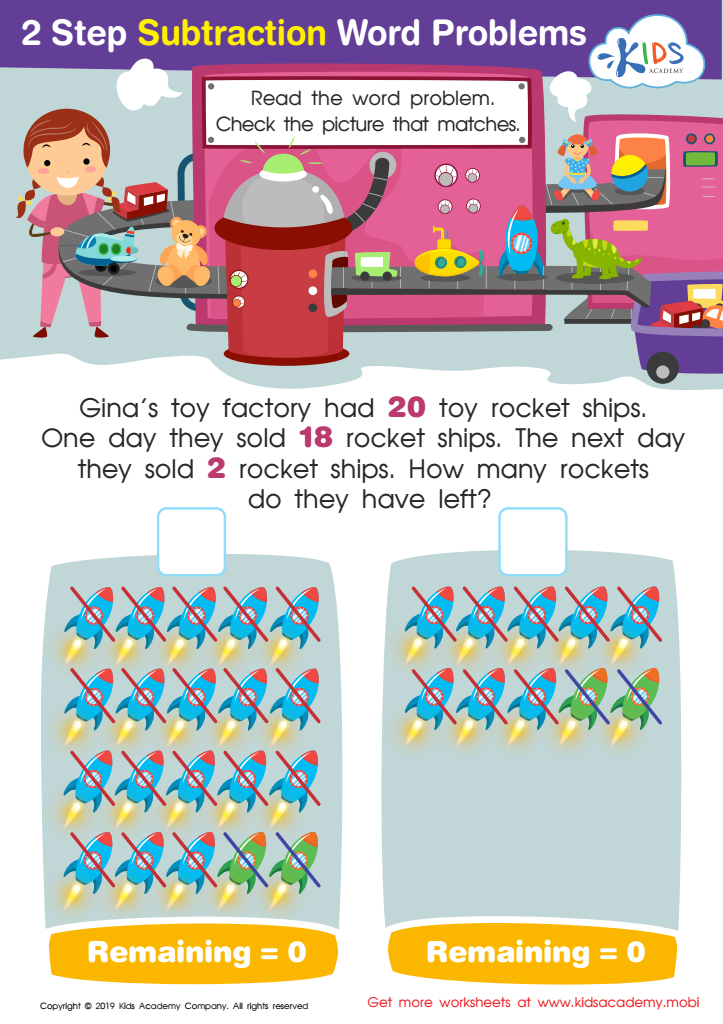

Step Subtraction Word Problems Worksheet
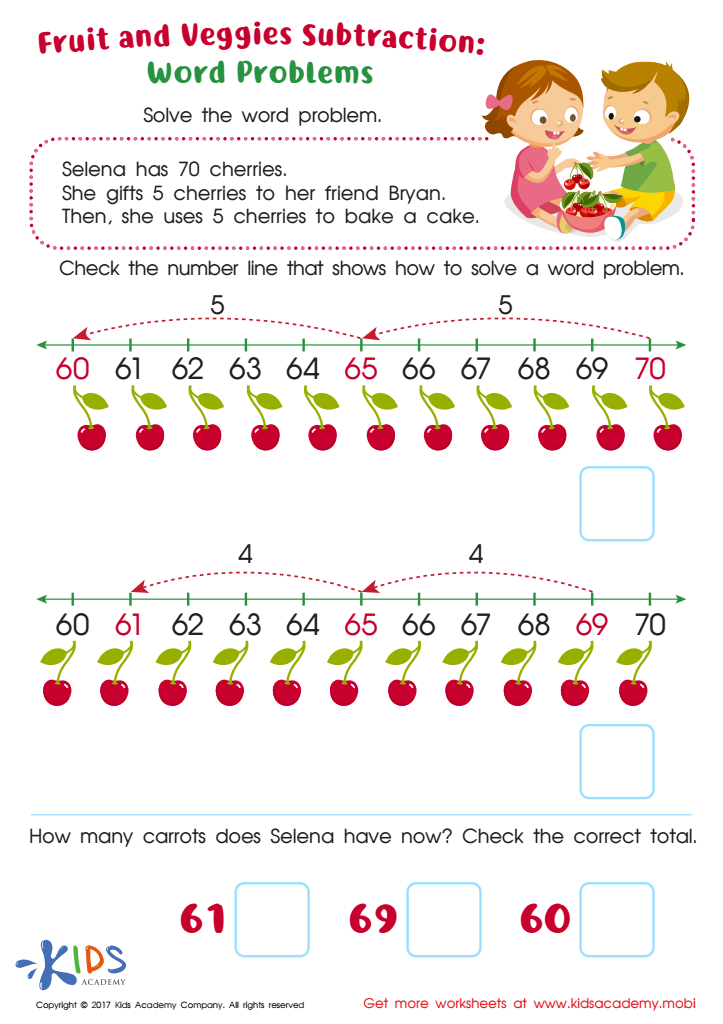

Subtraction Word Problems Free Printable
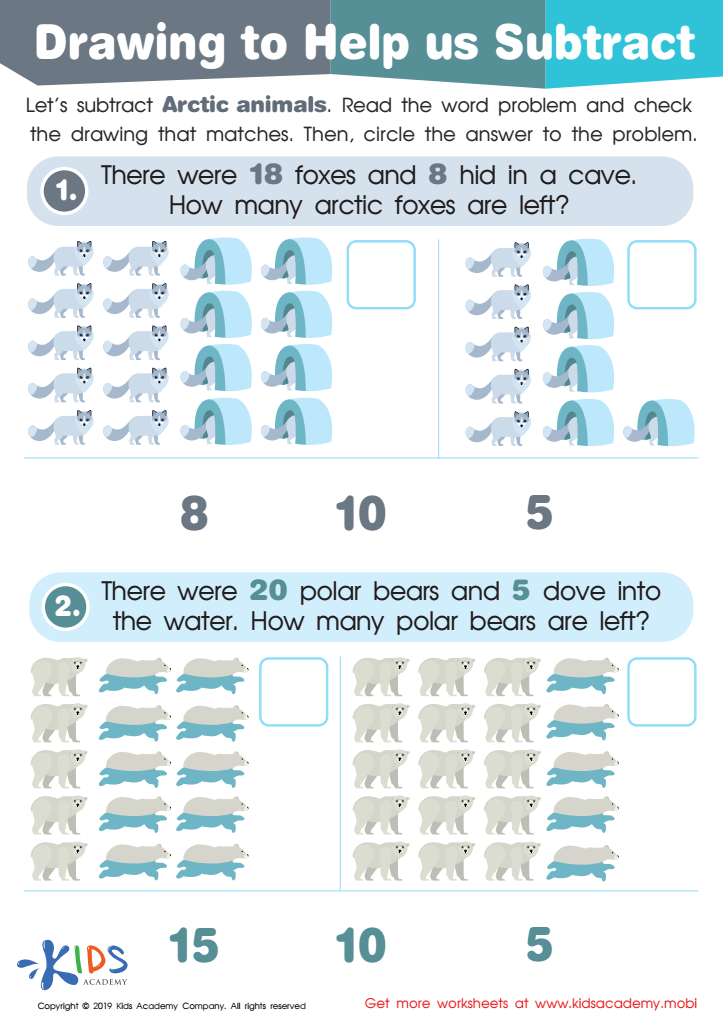

Drawing to Help Us Subtract Worksheet
Normal word problems are crucial for children aged 3-7 as they serve as foundational tools for developing key cognitive and mathematical skills. At this age, children begin to make sense of the world, and word problems offer relatable contexts that enhance their understanding of basic math concepts. When children engage with these problems, they practice critical thinking and problem-solving, using language to describe and interpret situations.
Additionally, normal word problems promote literacy and comprehension. As children interact with stories or scenarios that involve math, they learn to read and interpret information, vital skills in both math and literacy. This engagement also fosters communication skills, as students often discuss their thought processes with parents and teachers, enhancing verbal articulation.
Practicing word problems at this age cultivates a positive attitude towards mathematics and encourages a growth mindset, laying the groundwork for future academic success. Moreover, these problems help to connect math to everyday experiences, making learning relevant and enjoyable. Ultimately, by prioritizing normal word problems, parents and teachers can support holistic development in young children, equipping them not just with computational skills, but the ability to apply math in real-life contexts.
 Assign to My Students
Assign to My Students








.jpg)










